Arts
Maybe Happy Ending: A robot love story that rewrote Broadway playbook
Korean original musical ‘Maybe Happy Ending’ has earned 10 Tony Awards nominations, priming for another ‘Parasite’ moment
By 11 HOURS AGO
5
Min read
Most Read
LG Chem to sell water filter business to Glenwood PE for $692 million


KT&G eyes overseas M&A after rejecting activist fund's offer


Mirae Asset to be named Korea Post’s core real estate fund operator


StockX in merger talks with Naver’s online reseller Kream


Meritz backs half of ex-manager’s $210 mn hedge fund


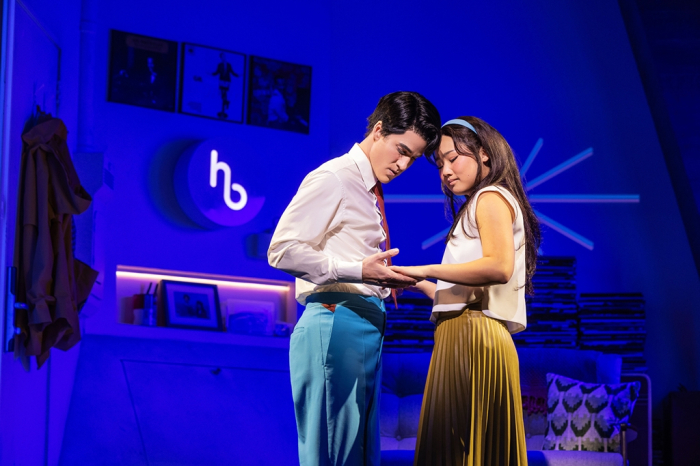
On an unremarkable evening in November 2024, inside the opulent Belasco Theatre in Manhattan, something quietly historic was taking place.
A delicate, melancholic love story – set not in New York, London or Paris, but in a crumbling apartment in late 21st-century Seoul – packed Belasco Theatre’s 1,000-seat house with a tale of two outdated helper robots searching for connection in a disconnected world.
That musical, “Maybe Happy Ending,” didn’t just win over Broadway audiences. It stormed into the upper echelons of American theater’s most elite awards circle, earning 10 Tony Awards nominations, including for Best Musical, Best Direction and Best Actor, according to the Broadway League and the American Theatre Wing, the organizers of the 78th Tony Awards, on Thursday.
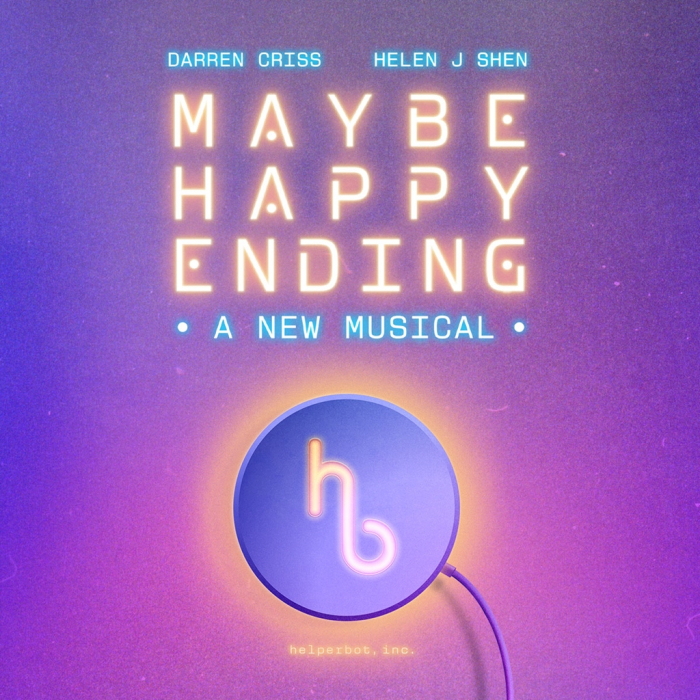
The seven other nominated categories are Best Screenplay, Best Original Score (Composition and Lyrics), Best Orchestrations (Arrangements), Best Stage Design, Best Costume Design, Best Lighting Design and Best Sound Design.
For a homegrown South Korean musical to accomplish this – without a known film intellectual property, a celebrity cast or English-language origins – is unprecedented.
“It’s the kind of emotional narrative that slips past your defenses,” said one musical critic. “It’s about AI, yes – but really, it’s about being obsolete, and still trying to love. That’s painfully human.”
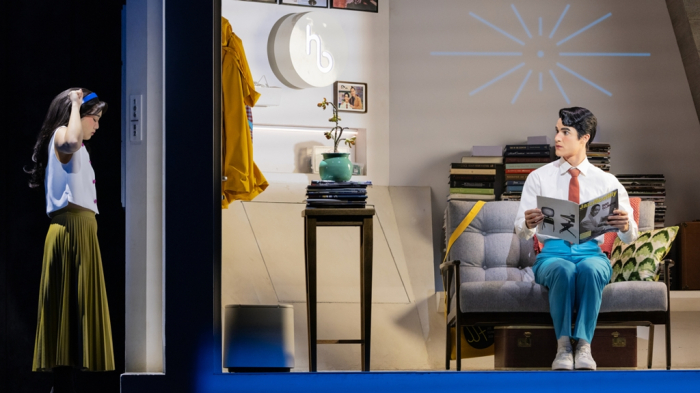
FROM DAEHAKRO TO BROADWAY
Maybe Happy Ending is the brainchild of Korean playwright Park Chun-hue, also known by his English name Hue Park, and US composer Will Aronson –the two colloquially known in Korea as the “Will-Hue duo.”
The two met at New York University and previously collaborated on several projects, but their 2016 debut of Maybe Happy Ending in Seoul’s Daehakro theater district marked a turning point. With its blend of poetic storytelling and evocative melodies, the production struck a nerve in Korea, rapidly achieving cult status.
By the time the show opened at the Belasco Theatre in November last year, anticipation had already spread among theater insiders.
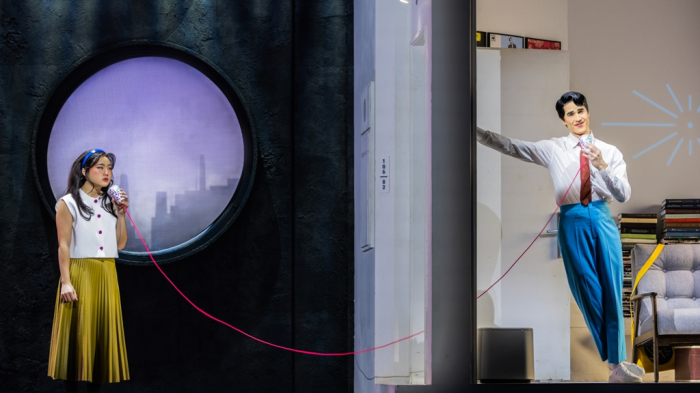
In a season heavy with adaptations – “Death Becomes Her” and “Buena Vista Social Club” among them – Maybe Happy Ending stood out as something startlingly original. Alongside Maybe Happy Ending, the two musicals also earned 10 Tony Award nominations.
Despite a modest marketing budget and no marquee stars, the Korean show consistently filled more than 90% of the Belasco Theatre’s seats through its run, with performances now extended into early 2026.
Critics have praised its “elegant futurism” and its refusal to lean on sentimentality, even as it explores loneliness, memory and what remains when technology makes us forget how to get stuff done.
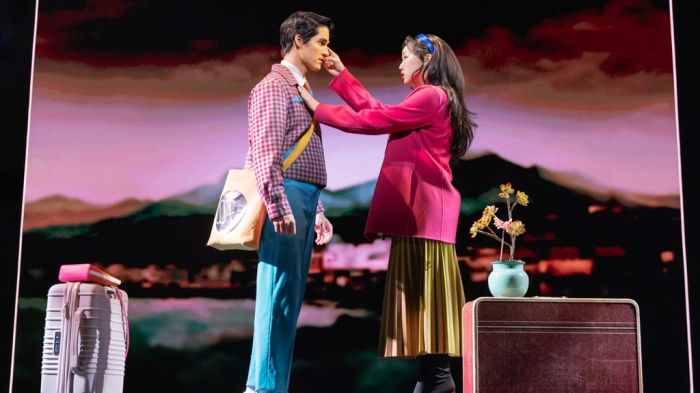
A NEW KIND OF KOREAN CULTURE EXPORT
The rise of Maybe Happy Ending comes at a time when Korean cultural exports have never been more visible.
From the historic Best Picture Oscar win of Korean film “Parasite” to the global ascent of K-pop, the term "K-culture" has entered mainstream Western vocabulary.
But while previous Korean musicals such as “The Great Gatsby” – a Korean production developed specifically for Broadway – have earned recognition, Maybe Happy Ending represents a purer cultural exchange.
It premiered in Seoul. It was steeped in Korean aesthetics and linguistic nuances. And yet, it found resonance far beyond them, critics say.

Unlike international productions that rely on familiar narratives or heavy investment from global conglomerates – CJ ENM Co. was behind Broadway’s “Moulin Rouge!” and “Kinky Boots” – Maybe Happy Ending is comparatively indie.
Its themes – AI’s search for meaning, aging in obsolescence and the impossibility of clean goodbyes – resonate in an age saturated with talk of machines replacing human warmth.
“The staging used Korean script – words like 모텔 (motel) and phrases like 어쩌면 해피엔딩 (maybe happy ending) – as part of the set, and yet, the American audience didn’t feel alienated. That’s the power of emotional truth,” said Choi Seung-yeon, a prominent Korean musical critic.
K-MUSICALS: ‘THEY ARE A FORCE’
The Tony nominations suggest a production operating at the highest technical levels.
But what’s perhaps most notable is how it succeeded without bending to Broadway’s usual commercial strategies. There was no stunt casting, no film tie-in, no franchise.
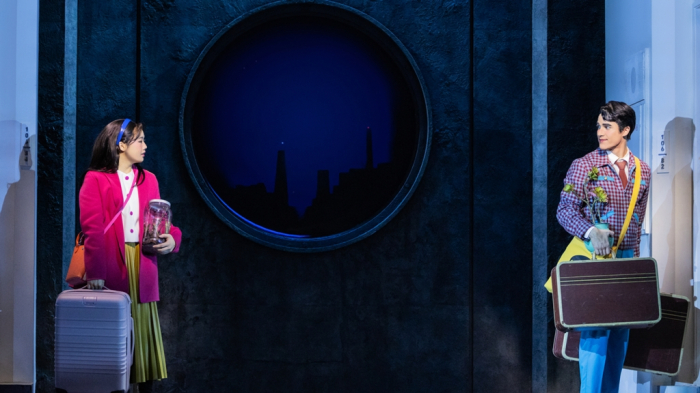
“This is about trust in the material,” says Won Jong-won, a professor in the Department of Performing Arts and Media Arts at Soonchunhyang University in Korea. “Just as Parasite showed that a local Korean story could resonate globally, Maybe Happy Ending tells us that K-musicals are no longer fringe. They’re a force.”
If Maybe Happy Ending wins Best Musical on June 8 at the Radio City Music Hall ceremony, it could become the “Parasite moment” for Korean theater, analysts said.
Back home, the musical is preparing for another Korean run in October. The irony isn’t lost on some: a Korean show that proved itself on Broadway now returning as a conquering hero to Daehakro, where it all began.
As Broadway recalibrates what international theater can look like, one thing is clear. The future might be full of robots. But thanks to a small Seoul apartment and two broken helpers named Oliver and Claire, it might also still have heart.
Write to Se-Min Huh at semin@hankyung.com
In-Soo Nam edited this article.
More to Read
-
 K-popK-pop stocks surge as China set to loosen cultural ban after 9 years
K-popK-pop stocks surge as China set to loosen cultural ban after 9 yearsApr 29, 2025 (Gmt+09:00)
3 Min read -
 Food & BeverageKorean snacks mesmerize global consumers amid K-pop popularity
Food & BeverageKorean snacks mesmerize global consumers amid K-pop popularityMar 10, 2025 (Gmt+09:00)
4 Min read -
 K-popK-pop exports boom as end of Chinese K-wave ban looms large
K-popK-pop exports boom as end of Chinese K-wave ban looms largeMar 31, 2025 (Gmt+09:00)
4 Min read -

-
 Corporate investmentCJ to beef up content, K-food sector with $9.7 billion investment
Corporate investmentCJ to beef up content, K-food sector with $9.7 billion investmentMay 30, 2022 (Gmt+09:00)
2 Min read
Comment 0
LOG IN


